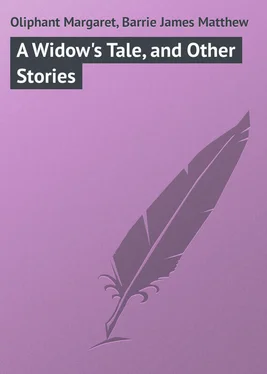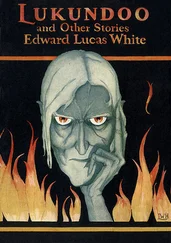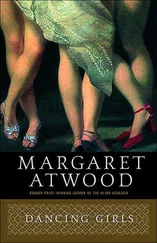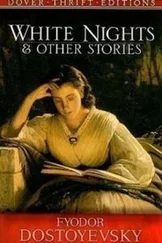Margaret Oliphant - A Widow's Tale, and Other Stories
Здесь есть возможность читать онлайн «Margaret Oliphant - A Widow's Tale, and Other Stories» — ознакомительный отрывок электронной книги совершенно бесплатно, а после прочтения отрывка купить полную версию. В некоторых случаях можно слушать аудио, скачать через торрент в формате fb2 и присутствует краткое содержание. Издательство: Иностранный паблик, Жанр: foreign_prose, на английском языке. Описание произведения, (предисловие) а так же отзывы посетителей доступны на портале библиотеки ЛибКат.
- Название:A Widow's Tale, and Other Stories
- Автор:
- Издательство:Иностранный паблик
- Жанр:
- Год:неизвестен
- ISBN:нет данных
- Рейтинг книги:3 / 5. Голосов: 1
-
Избранное:Добавить в избранное
- Отзывы:
-
Ваша оценка:
- 60
- 1
- 2
- 3
- 4
- 5
A Widow's Tale, and Other Stories: краткое содержание, описание и аннотация
Предлагаем к чтению аннотацию, описание, краткое содержание или предисловие (зависит от того, что написал сам автор книги «A Widow's Tale, and Other Stories»). Если вы не нашли необходимую информацию о книге — напишите в комментариях, мы постараемся отыскать её.
A Widow's Tale, and Other Stories — читать онлайн ознакомительный отрывок
Ниже представлен текст книги, разбитый по страницам. Система сохранения места последней прочитанной страницы, позволяет с удобством читать онлайн бесплатно книгу «A Widow's Tale, and Other Stories», без необходимости каждый раз заново искать на чём Вы остановились. Поставьте закладку, и сможете в любой момент перейти на страницу, на которой закончили чтение.
Интервал:
Закладка:
But it did not. "Oh, for various reasons?" he said, lifting his shaggy eyebrows. "And did you think it expedient too?"
"You know I enter very little into business matters," she replied, with the calm she felt. "Of course we all miss him very much when he is away from home; but I never have put myself in Robert's way."
"You've been a very good wife to him," said the old man with a slight shake of the head, "an excellent wife; and you don't feel the least uneasy? Quite comfortable about his health, and all that sort of thing? I think I'd look him up if I were you."
"Have you heard anything about his health? Is Robert ill, Mr Fareham, and you are trying to break it to me?" she said, springing to her feet.
"No, no, nothing of the sort," he said, putting his hand on her arm to make her reseat herself. "Nothing of the sort; not a word! I know no more than you do – probably not half or quarter so much. No, no, my dear lady, not a word."
"Then why should you frighten me so?" she said, sitting down again with a flutter at her heart, but a faint smile; "you gave me a great fright. I thought you must have heard something that had been concealed from me."
"Not at all, not at all," said the old man. "I'm very glad you're not uneasy. Still it is a bad practice when they get to stay so long from home. I'd look him up if I were you."
"Do you know anything I don't know?" she said, with a recurrence of her first fear.
"No, no!" he cried – "nothing, nothing, I know nothing; but I don't think Landon should be so long absent. That's all; I'd look him up if I were you."
Mrs Lycett-Landon did not enjoy the ball that night. For some time indeed she hesitated about going. But Milly and Horace were much startled by this idea, and assailed her with questions – What had she heard? Was papa ill? Had anything happened? She was obliged to confess that nothing had happened, that she had heard nothing, but that old Fareham thought papa should not be so long away, and had asked if she were not uneasy about his health. What if he should be ill and concealing it from them? The children paled a little, then burst forth almost with laughter. Papa conceal it from them! he who always wanted so much taking care of when he was poorly. And why should he conceal it? This was quite unanswerable; for to be sure there was no reason in the world why he should not let his wife know, who would have gone to him at once, without an hour's delay. So they went to the ball, and spent the night in Liverpool, and next morning remembered nothing save that old Fareham was always disagreeable. "If he knew your father's real object in spending so much time in London!" Mrs Lycett-Landon said. It was her husband's generous wish to keep this anxiety from the old man; and how little such generous motives are appreciated in this world. It was evening before they returned home – for of course with so large a family there is always shopping to do, and the ladies waited till Horace left the office. But when they reached the Elms, as their house was called, there was a letter waiting which was not comfortable. It was directed in a hand which they could scarcely identify as papa's; not from his club as usual, nor on the office paper – with no date but London. And this was what it said: —
"My dear, – You must not be disappointed if I write only a few words. I have hurt my hand, which makes writing uncomfortable. It is not of the least importance, and you need not be uneasy: but accept the explanation if it should happen to be some days before you hear from me again. Love to the children. – Yours affectionately,
R. L. L."Mrs Lycett-Landon grew pale as she read this note. "I see it all," she said; "there has been an accident, and Mr Fareham did not like to tell me of it. Horace, where is the book of the trains? I must go at once. Run, Milly, and put up a few things for me in my travelling-bag."
"What is it, mother? Hurt his hand? Oh, but that is not much," Horace said.
"It is not much perhaps; but to be so careful lest I should be anxious is not papa's way. 'If it should happen to be some days – ' Why, it is ten days since he wrote last. I am very anxious. Horry, my dear, don't talk to me, but go and see about the trains at once."
"I know very well about the trains," said Horace. "There is one at ten, but then it arrives in the middle of the night. Stop at all events till to-morrow morning. I will telegraph."
"I am going by that ten train," his mother said.
"Which arrives between three and four in the morning!"
"Never mind, I can go to the Euston, where papa always goes. Perhaps I shall find him there. He has never said where he was living."
"You may be sure," said Horace, "you will not find him at the Euston. No doubt he is in the old place in Jermyn Street. He only goes to the Euston when he is up for a day or two."
"I shall find him easily enough," Mrs Lycett-Landon said.
And then a little bustle and commotion ensued. Dinner was had which nobody could eat, though they all said it was probably nothing, and that papa would laugh when he knew the disturbance his letter had made. At least the children said this, their mother making little reply. Milly thought he would be much surprised to see mamma arrive in the early morning. He would like it, Milly thought. Papa was always disposed to find his own ailments very important, and thought it natural to make a fuss about them. She wanted to accompany her mother, but consented, not without a sense of dignity, that it was more necessary she should stay at home to look after the children and the house. But Horace insisted that he must go; and though Mrs Lycett-Landon had a strange disinclination to this which she herself could not understand, it seemed on the whole so right and natural that she could not stand out against it. "There is no occasion," she said. "I can look after myself quite well, and your father too." But Horace refused to hear reason, and Milly inquired what was the good of having a grown-up son if you did not make any use of him? Their minds were so free, that they both tittered a little at this, the title of grown-up son being unfamiliar and half absurd, in Milly's intention at least. She walked down with them to the boat in the soft summer night. The world was all aglow with softened lights – the moon in the sky, the lamps on the opposite bank, reflecting themselves in long lines in the still water, and every dim vessel in the roadway throwing up its little sea-star of colour. "I shouldn't wonder," said Milly, "if it is a touch of the gout, like that he had last year, and no accident at all."
"So much the more need for good nursing," her mother said, as she stepped into the boat.
Milly walked back again with Charley, her next brother, who was fifteen. They went up to the summer-house among the trees and watched the boat as it went rustling, bustling through the groups of shipping in the river, and made little bets between themselves as to whether it would beat the Birkenhead boat, or if the Seacombe would get there first of all. There were not so many ferry-boats as usual at this hour of the night, but one or two were returning both up and down the river which had been out with pleasure-parties, with music sounding softly on the water. "It is only that horrid old fiddle if we were near it," said Milly, "but it sounds quite melodious here," – for the soft night and the summer air, and the influence of the great water, made everything mellow. The doors and windows of the happy house were still all open. It was full of sleeping children and comfortable servants, and life and peace, though the master and the mistress were both away.
CHAPTER IV.
GOING TO LOOK HIM UP
They reached London in the dawn of the morning, when the blue day was coming in over the housetops, before the ordinary stir of the waking world had begun. Of course, at that early hour it was impossible to do anything save to take refuge in the big hotel, and try to rest a little till it should be time for further proceedings. They found at once from the sleepy waiter who received them that Mr Lycett-Landon was not there. He remembered the gentleman; but they hadn't seen him not since last summer, the man said.
Читать дальшеИнтервал:
Закладка:
Похожие книги на «A Widow's Tale, and Other Stories»
Представляем Вашему вниманию похожие книги на «A Widow's Tale, and Other Stories» списком для выбора. Мы отобрали схожую по названию и смыслу литературу в надежде предоставить читателям больше вариантов отыскать новые, интересные, ещё непрочитанные произведения.
Обсуждение, отзывы о книге «A Widow's Tale, and Other Stories» и просто собственные мнения читателей. Оставьте ваши комментарии, напишите, что Вы думаете о произведении, его смысле или главных героях. Укажите что конкретно понравилось, а что нет, и почему Вы так считаете.












